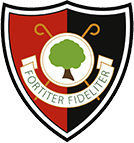History
SPIRITUAL, MORAL, SOCIAL AND CULTURE IN HISTORY
The History Department are proud to offer a range of Spiritual, Moral, Social and Cultural experiences through History lessons and enrichment activities.
Students express their creativity and understanding of what it means to be a ‘good global citizen’ as well as an understanding of other lifestyles, morals and cultures through their study of a variety of different topics at KS3 and KS4. Students are expected either to consider the needs and experiences of others, or their own personal responses to events, problems and changes.
Competitions and clubs are offered to allow students to develop and showcase their skills, knowledge and experiences through SMSC in History, many of which take place in our very own ‘Humanities week’ where History, Geography and RE work together to create exciting and valuable experiences for the students to explore exciting topics in our subjects as well as the SMSC aspects within our subjects.
Spiritual Development in History
A sense of curiosity is central to the study of History at Oxted School and is strongly encouraged by the staff.
Lessons adapt according to students’ current knowledge and thirst for more. Students are encouraged to investigate the causes of the First World War and the reasons for the outbreak of the Second World War
The idea of truth is central to all History lessons that use sources.
The nature of historical truth based on personal memoir is particularly explored throughout our curriculum studying
- King John and the sources used to formulate interpretations of King John in Year 7
- Slavery and the journey individuals went on from Africa to the Americas in Year 8
- The Holocaust in Year 9
Spiritual development is encouraged regularly by providing students opportunities to appreciate intangible concepts. The idea of truth is central to all History lessons that use sources. Order and beauty, and differing interpretations of these, also form a part of GCSE History when assessing Nazi government and propaganda.
A sense of empathy is consistently extended in lessons. History demands an understanding of others, such as that of women in WW1 during Year 8 and Year 9 and the experiences of different types of Americans in the 19th century.
Moral Development in History
History lends itself well to supporting the moral education and development of young people.
Whole school trips led by the History staff encourage students to reflect on their personal values, principles and actions, in the light of historical events and commemorations. This year, the debate about whether to wear a poppy was considered when visiting the Battlefields in Belgium.
Moral questions form a key part of many of the units on offer in History at History. In preparation for their new GCSE courses, lessons saw students discussing and attempting to come to a consensus on who was more to blame for the Holocaust; Hitler, the Nazi Party or the German people. Notions of right and wrong were explored in this session and throughout the course as students grapple with the nature of conformity and complicity.
Social Development in History
All years:
Speaking and listening, creative writing, group discussions and presentations; drama role play and hot seating, team learning and group work.
Cultural Development in History
Much of the History curriculum in Year 9 and at GCSE explicitly teaches students an appreciation of the influences that have shaped their own cultural heritage in Britain. The two World Wars and the key changes brought about by these events are key.
For example, a debate about the ‘Blitz Spirit’ engages students in the nature of Britishness and the setting up of the NHS in Year 10 and its differences from other nations is also explored.
Through marking each other’s work and delivering presentations, students also are introduced to concepts, values and events they would never otherwise have encountered.
The History curriculum offers students opportunities to express their opinions and communicate their knowledge in varied ways from Years 9 to 13, including artistic and cultural forms. Homework about the nature of trench warfare have taken the form of artwork, assessments of continuity and change in Medicine have been demonstrated through the rewriting of song lyrics and the role of individuals through the use of social media.
The contribution of different cultures to human development and progress is also assessed carefully, especially in the Year 10 unit covering the History of Medicine which considers the extent of the impact that the Christian Church, the Muslim World and Ancient cultures had on the development of medicine and treatment.
British Values
A range of topics lend themselves to promoting our fundamental British values. Fairness and equality are explored within units such as development, The Romans, Slavery, and Medieval Britain. Here, students discuss the idea of corporate, individual and national responsibility and the overall fairness of modern day society.
Students also learn about British history as they learn about the industrial revolution and how it has shaped our economy. Embedding students understanding around the importance of living in a democracy is also developed through these topics.
The Department undertakes a number of enrichment activities which enhance student confidence and their sense of belonging as members of our school society, including History club, where students investigate topics of their choice; key factors which underpin our British Values.



